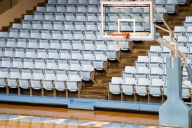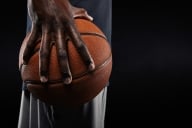You have /5 articles left.
Sign up for a free account or log in.
In an endless cycle of perpetuating stereotypes, college athletes care a great deal about academics, a recent paper suggests, but some purposefully underperform academically in a misguided attempt to fit in with their teammates.
College athletes, especially those involved in big-time college sports like Division I football and basketball, tend to take easier courses and earn lower grades than nonathletes. Previous research has suggested several explanations for their underperformance, including the demanding time requirements of playing a sport, special admissions practices that enroll underprepared students and an apparent lack of motivation from athletes.
The new paper by researchers at the University of California at Los Angeles and Princeton University asserts that there may be an additional explanation: athletes study less and gravitate toward easier courses because they want to better align with what they assume are the views of their peers.
“In order to fit in, athletes conform to the perceived (but false) social norm in their public behaviors, thus undermining their academic performance and simultaneously reinforcing the (false) social norm for the rest of their team,” the authors wrote.
Privately, many athletes say that they care about academics as much or more than they care about their sport, according to the paper, but they’re largely unaware that their teammates feel the same way. While the paper may provide a glimpse into what drives even academically motivated athletes to eschew more rigorous course work and studying habits, the research is limited by its focus on Division III football players.
The paper is based on 5 surveys: one of 98 players on a Division III football team; another of 49 athletes ranging from 6th graders to college sophomores; one of 50 orchestra students from a private Midwest college; another of 14 dancers from a university dance troupe; and one of 25 Reserve Officers Training Corps cadets at an East Coast university.
Though none of the subjects were athletes in what would be considered big-time college athletics, the survey responses indicated that even athletes at this less competitive level were much more likely to underestimate how much their peers cared about academic achievement, compared to students involved in other extracurricular activities like R.O.T.C., orchestra and dance. The difference between self-reported judgments and perceptions of their peers for orchestra students was less than half as large as the difference for athletes.
“Although the subjects self-reported valuing academics more than athletics, they perceived the average student-athlete’s emphasis on academic achievement as lower than the average student-athlete's emphasis on athletic achievement,” the authors wrote. “In addition, they perceived teammates as caring more about athletic achievement than academic achievement.”
While athletes' private feelings toward academics did not align with their perceptions of the rest of the team, the time that athletes spent studying -- a public, observable behavior -- directly reflected their perceptions of others. The researchers found similar behavior among middle school and high school athletes, suggesting that what the researchers called “pluralistic ignorance” begins much earlier than college.
“While participants had private attitudes toward academics, their public behaviors aligned with perceived group norms,” the authors wrote. "Thus, pluralistic ignorance among student-athletes may be contributing to academic underperformance.”
The paper -- called “Pluralistic ignorance among student-athlete populations” -- was written by Daniel Oppenheimer, a professor of marketing and psychology at the University of California at Los Angeles, Sara Etchison, also of UCLA, and Joshua Levine, of Princeton University. In a statement announcing the paper, Oppenheimer said the research was inspired by his own time teaching college athletes.
“I’ve taught student-athletes for more than a decade, and they are some of the hardest-working and most dedicated students in my classes,” Oppenheimer said. “So we started to wonder whether the misperception of student athletes not caring about academics was a problem in and of itself.”








